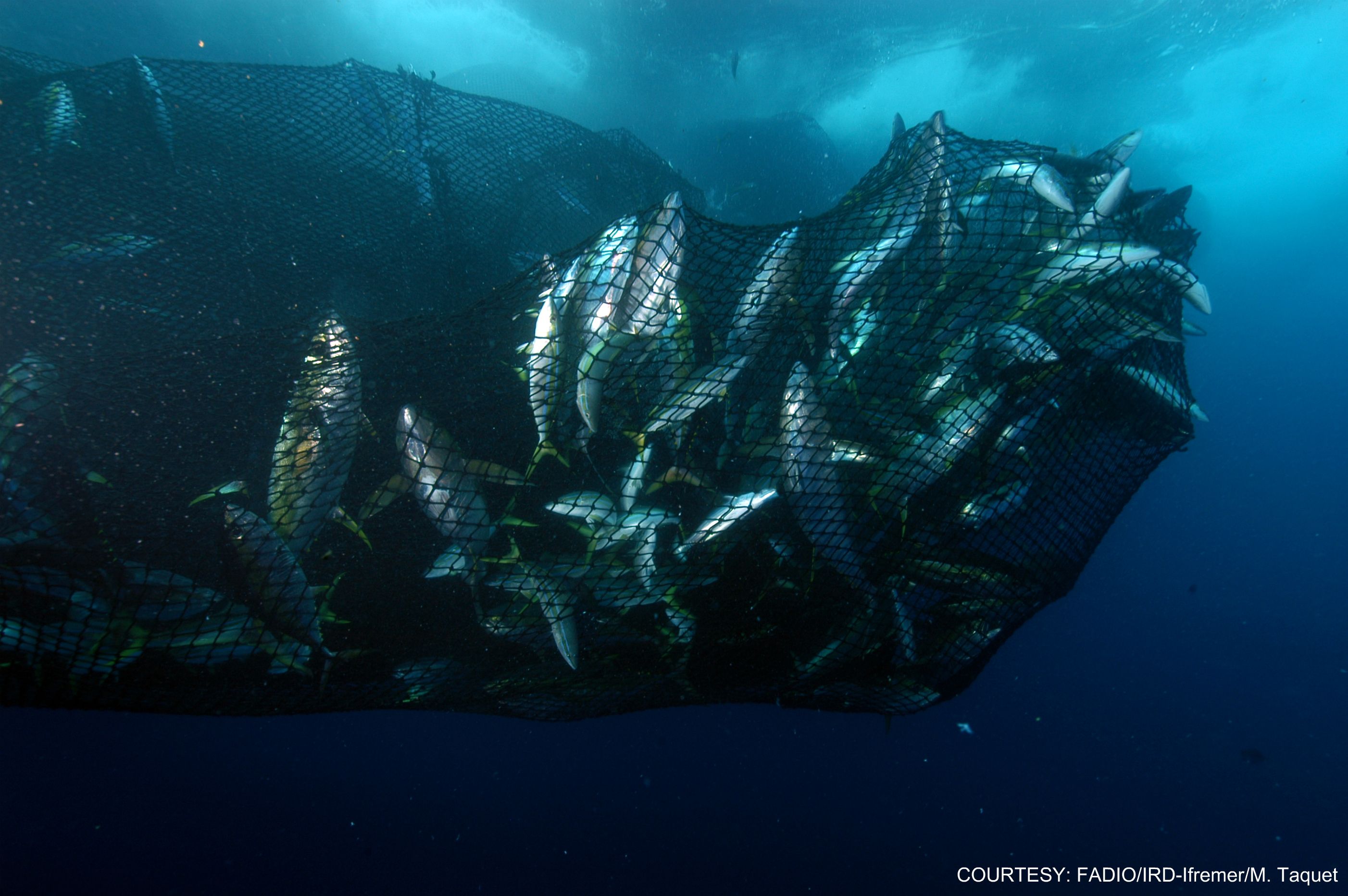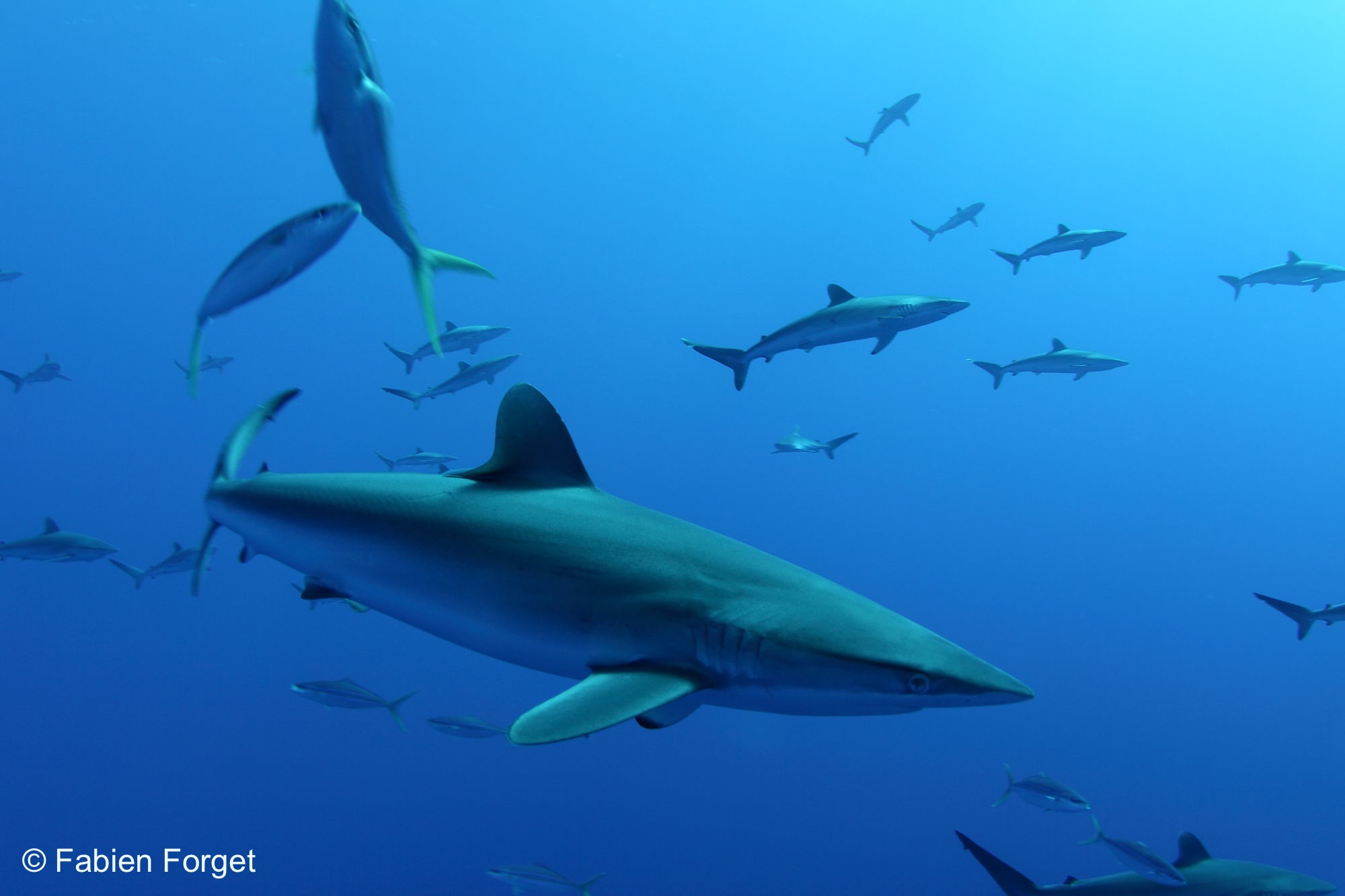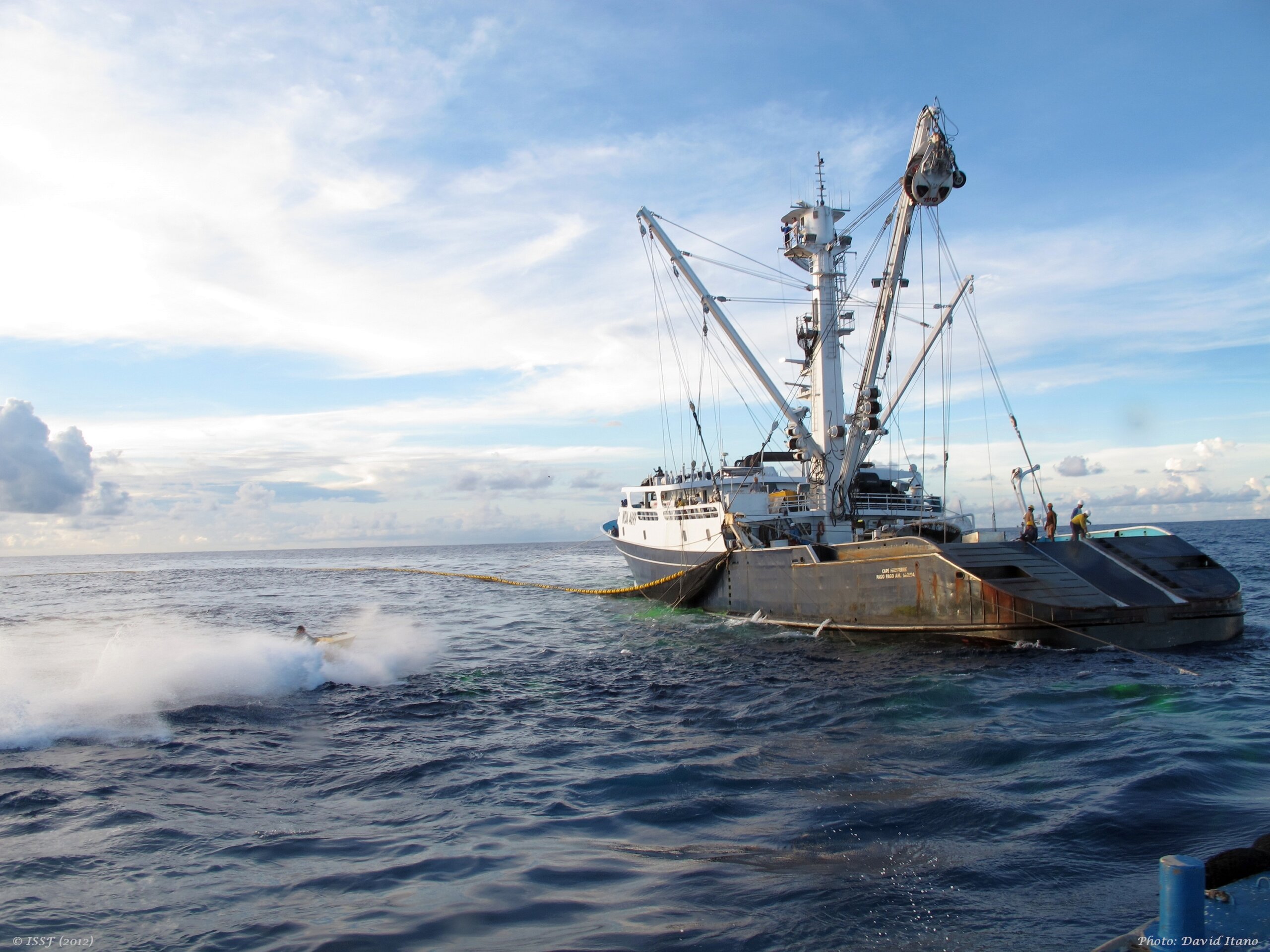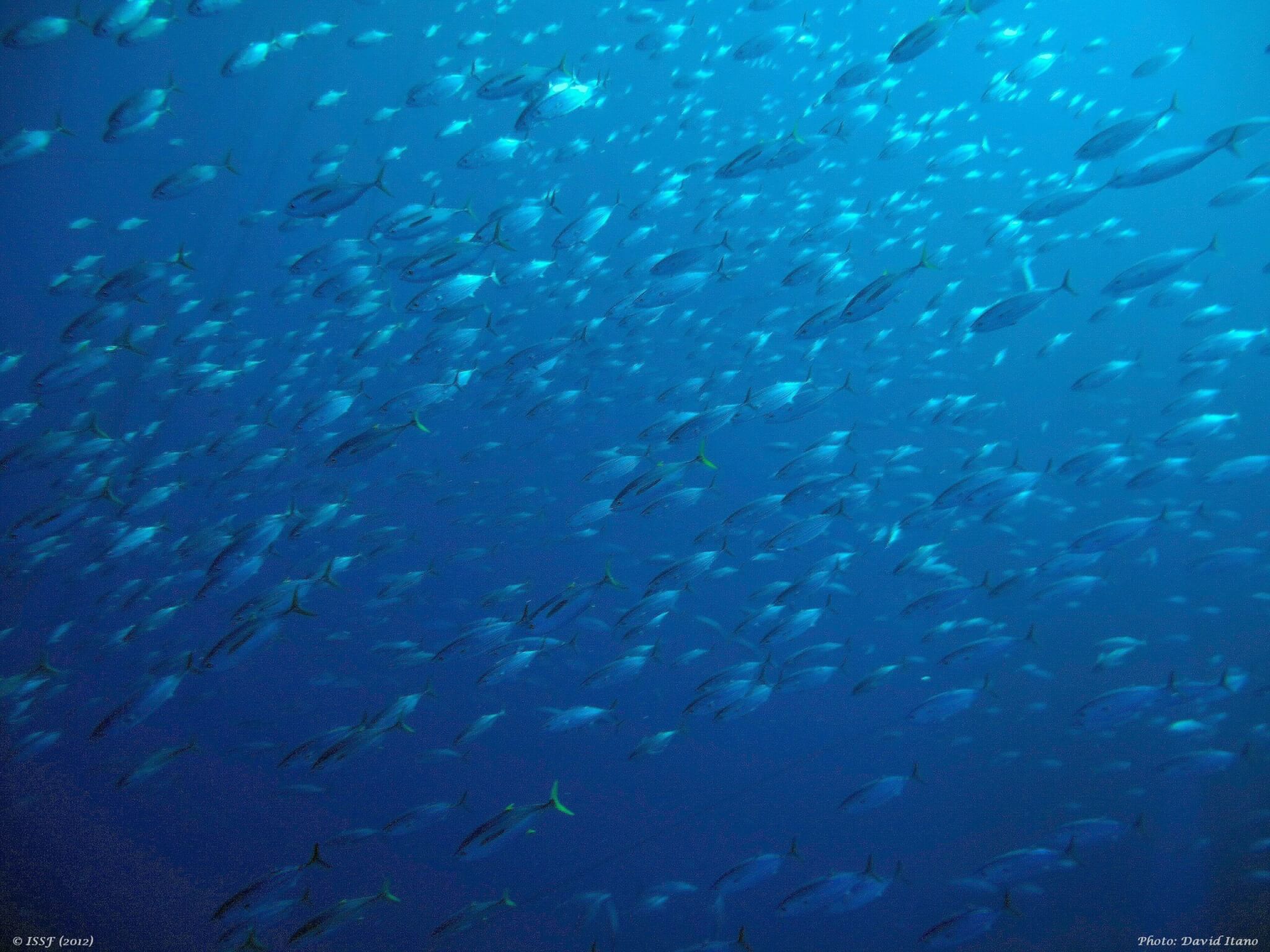
ISSF Position Statements Outline Priorities for Three Tuna RFMOs as They Prepare for Online Annual Meetings
The International Seafood Sustainability Foundation (ISSF) has published its position statements in advance of three regional fisheries management organization (RFMO) meetings this fall: the International Commission for the Conservation of Atlantic Tunas (ICCAT) Annual Meeting, which is being conducted by correspondence; the Inter-American Tropical Tuna Commission (IATTC) 95th Meeting, to be held virtually November 30-December 4; and the Western and Central Pacific Fisheries Commission (WCPFC) 17th Regular Session, to be held virtually December 8-15.
Find out which #sustainable #fishing issues ISSF is urging three #tuna #RFMOs -- #ICCAT, IATTC, and #WCPFC -- to address at their year-end annual meetings. Share on XThe impacts of COVID-19 have challenged RFMOs in conducting their meetings in 2020. All tuna RFMOs have had to cancel or postpone some in-person meetings and hold others virtually or by other means.
“Despite the limitations created by the COVID-19 pandemic, ISSF believes that RFMOs have a duty to continue making progress on the long-term sustainable use of tuna stocks,” said ISSF President Susan Jackson. “RFMOs have come a long way in recent years — on the adoption of measures for FAD management, harvest control rules, stronger vessel monitoring systems, and increased observer coverage and standards for electronic monitoring or reporting— but still have a long way to go. There are significant challenges brought about by this pandemic, both in terms of decision-making and monitoring, but they are not insurmountable, and we believe progress can and must be made to ensure the sustainable management of global tuna stocks and marine ecosystems.”
Priority positions for each of these three RFMOs are outlined below.
ISSF Recommended Priorities for ICCAT (Meeting By Correspondence)
- Ensure that Recommendations that are about to partially or fully expire continue to be effective throughout 2021
- Adopt a work plan for fish aggregating devices (FADs) with a timeframe to transition to FADs without nets and made primarily with biodegradable materials, develop recovery policies and a marking scheme, and require FAD position data and acoustic records
- Accelerate the adoption of harvest strategies for tropical tunas
- Adopt minimum standards for electronic monitoring to require 100% observer coverage (human and/or electronic) for all major ICCAT fisheries, and all vessels engaged in at-sea transshipment, within five years
- Request the Compliance Committee to address the existing non-compliance with FAD data reporting requirements
ISSF Recommended Priorities for IATTC (Meeting November 30-December 4)
- In 2020, adopt a robust conservation management measure to replace the expiring resolutions that is precautionary and based on scientific advice
- Request the Scientific Staff to provide science-based limits on FAD numbers, deployments and/or sets; and amend resolutions in 2020 or 2021 to include clear timelines to develop FAD marking guidelines, transition to fully non-entangling FADs and the use of biodegradable materials, FAD recovery mechanisms, and provide FAD position data
- In 2021, speed up development of management strategy evaluations (MSE) for bigeye, skipjack and yellowfin
- Develop in 2021 a work plan for an electronic monitoring (EM) and e-reporting program and to establish fleet-wide observer program (either human or electronic) for small purse -seine vessels by 2022
- By 2022, adopt Port State Measures
- By 2021, establish a work plan for a scheme of responses to non-compliance and audit points
ISSF Recommended Priorities for WCPFC (Meeting December 8-15)
- Ensure that the existing tuna conservation measure (CMM 2018-01) does not lapse
- Adopt a work plan for FADs with a timeframe to transition to FADs without nets and made primarily with biodegradable materials, develop recovery policies and a marking scheme, and require FAD position data and acoustic records
- Adopt minimum standards for the use of electronic monitoring in WCPFC fisheries
- Advance the adoption of target reference points for bigeye and yellowfin and adopt a harvest control rule for skipjack
- Accelerate the remaining work to reform the Convention on Migratory Species (CMS), including allowing observer participation
Read the full IATTC, ICCAT and WCPFC Position Statements on the ISSF website. The IATTC and ICCAT Position Statements are also available in translation.
ISSF Global Priorities for Tuna RFMOs
ISSF is committed to advocating for science-based approaches, policies and conservation measures to advance tuna fisheries sustainability. Here are ISSF’s Global Priorities for four Tuna RFMOs — the Indian Ocean Tuna Commission (IOTC), the Inter-American Tropical Tuna Commission (IATTC), the International Commission for the Conservation of Atlantic Tunas (ICCAT) and the Western and Central Pacific Fisheries Commission (WCPFC):
- Implementation of rigorous management procedures, including harvest control rules and reference points
- Effective management of fleet capacity, including developing mechanisms that support developing coastal state engagement in the fishery
- Science-based FAD management & non-entangling and biodegradable FAD designs
- Increased member compliance with all adopted measures, and greater transparency of processes reviewing member compliance with measures
- Strengthened monitoring, control, and surveillance (MCS) measures and increased observer coverage, including through modern technologies such as electronic monitoring and e-reporting
- Adoption of best-practice bycatch mitigation and shark conservation and management measures


